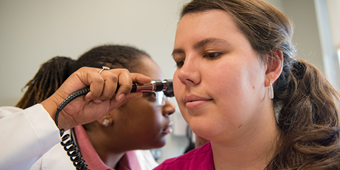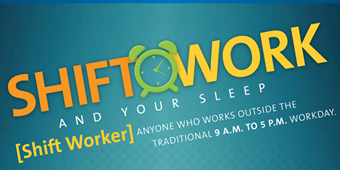Are Meds Messing With Your Sleep?

Find Your Perfect Match
Answer a few questions and we'll provide you with a list of primary care providers that best fit your needs.
If you’re feeling extra sleepy during the day, the culprit may be hiding in your medicine cabinet. The medications you take can greatly affect how well – and how long – you sleep.
Drugs – prescription or over-the-counter – can lead to that feeling that you just can’t keep your eyes open. And if you’re having trouble sleeping well, know that both can disrupt your sleep, as can common chemicals we consume every day, like caffeine.
If a medication is making you overly drowsy, it’s important to take this warning signal seriously. The sedating effects of certain medicines can make you less productive and even less safe. In fact, drugs like antihistamines can affect your ability to drive and are linked to a greater risk of next-day driving accidents.
Talk with your doctor about any medications you’re taking. Together, you can figure out why you’re feeling so tired and the best way to get back to feeling alert and productive.
Medications you take can greatly affect how well – and how long – you sleep.
Some medications that can make you sleepy:
- Alpha blockers: Used to treat high blood pressure
- Beta blockers: Used to treat high blood pressure, congestive heart failure, glaucoma and migraines
- Antidepressants
- Antihistamines: Found in OTC sleeping pills and other medications like Benadryl®
- Antiemetics: Used to control nausea and vomiting
- Antipsychotics and anticonvulsants
- Benzodiazepines and sedative-hypnotics: Commonly prescribed for anxiety or insomnia
- Beta-adrenergic blocking agents: Used to treat high blood pressure or anxiety
- Parkinson’s disease medications
- Muscle relaxants

Medications and other chemicals that disrupt sleep include:
- Alcohol: May help you fall asleep more quickly but the quality of your sleep will be affected. And you’re more likely to wake up more often. If you have sleep apnea, alcohol can make it worse
- Caffeine: Generally decreases the quantity of deep sleep and causes you to wake up more often during the night
- Nicotine: Best avoided altogether and especially right before sleep
Find Your Perfect Match
Answer a few questions and we'll provide you with a list of primary care providers that best fit your needs.
Source: National Sleep Foundation; Harvard Medical School Division of Sleep Medicine




